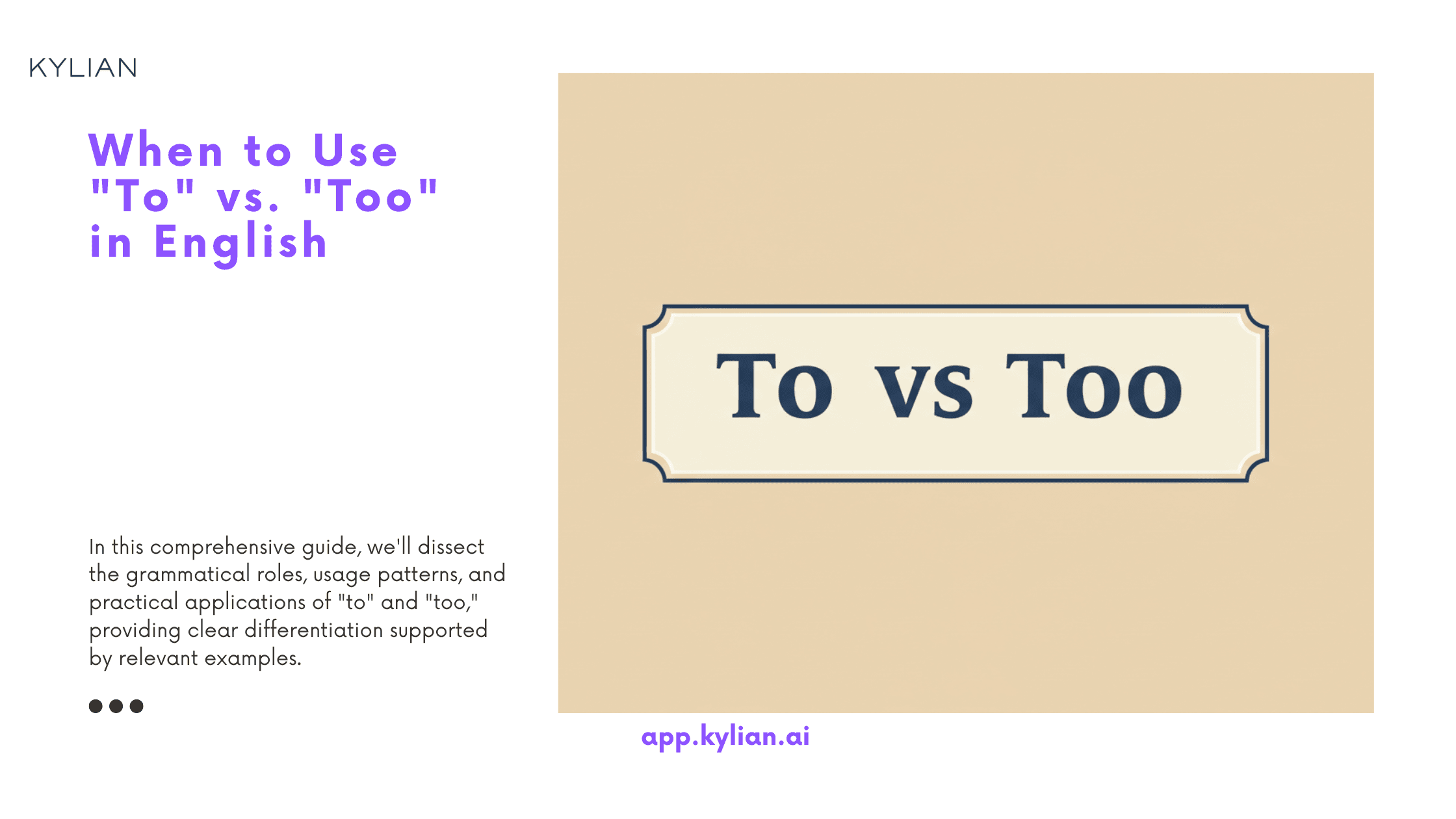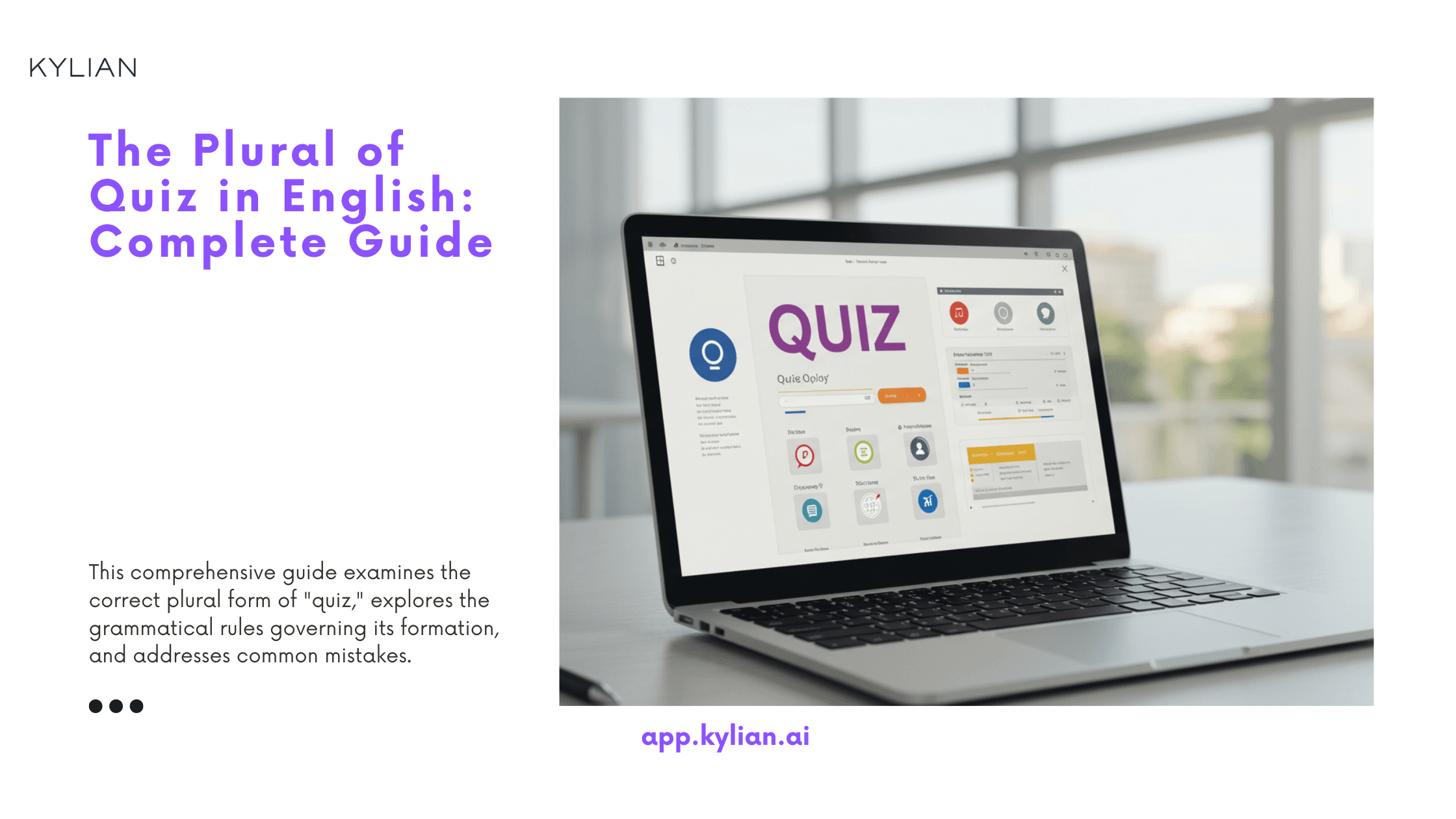Where Most People Come to Learn A Language
Our blog covers language learning tips and hacks we've acquired over the years


The Plural of Genius in English: Geniuses or Genii?
When we encounter exceptional brilliance, we instinctively reach for words that capture this extraordinary quality. "Genius" stands as one of our most powerful descriptors for remarkable intellect or talent. Yet, when we need to reference multiple individuals possessing this rare capacity, a linguistic puzzle emerges: what precisely is the plural of genius? Is it the straightforward "geniuses," following conventional English patterns? Or could it be "genii," adhering to classical Latin traditions? This question represents more than mere grammatical pedantry—it reflects how language evolves at the intersection of historical etymologies and practical modern usage.


More Simple or Simpler? Mastering Comparative Adjectives
Language precision matters fundamentally to effective communication. When speakers and writers need to make comparisons, the difference between correctly using "more simple" versus "simpler" can significantly impact clarity and credibility. This distinction represents more than mere grammatical pedantry—it reflects a deeper understanding of English language structure and usage patterns that affect how messages are received and interpreted. The comparative form of adjectives represents a frequent stumbling block for both native and non-native English speakers. The rules governing these constructions contain numerous exceptions and variations that can create confusion even for experienced users. Mastering these distinctions provides advantages in academic writing, professional communication, and everyday interactions. This comprehensive analysis examines when to use "simpler" versus "more simple," explores the underlying grammatical principles, and provides practical frameworks to guide correct usage across various contexts.


Sit Participial Form in English
The English language distinguishes itself through elegant participle constructions that enhance both written and verbal communication. Among these, the participial form of "sit" serves as a quintessential example of how English verbs transform to fulfill various grammatical functions. Understanding participles isn't merely an academic exercise—it's a practical skill that elevates language proficiency and enables nuanced expression. This comprehensive analysis examines how the verb "sit" operates in its participial forms, revealing patterns that apply across similar verbs. By mastering these patterns, you'll gain precision in describing posture, position, and persistence—concepts fundamental to effective communication in English.


America's Favorite Baby Talk: What the Data Reveals
A comprehensive study surveying 997 Americans has revealed fascinating insights into preferences and attitudes toward baby talk across the country. The research captured data on favorite terms, usage patterns, and social perceptions, providing a detailed look at this distinctive linguistic phenomenon. Parenting transforms lives through countless joys, challenges, and learning curves. From the perspective of non-parents, the parenting journey presents an intriguing mix of fascination and bewilderment - particularly when it comes to the curious linguistic phenomenon of "baby talk."


Top 10 German Learning Books for 2025: Complete Guide
German, with its rich literary tradition and economic significance, remains one of the most valuable languages to master. Whether you're planning to study abroad, advance your career, or simply enrich your cultural understanding, finding the right learning resources is crucial. Books, despite the proliferation of digital learning platforms, continue to offer unmatched depth, structure, and reliability. Let's explore the top 10 German language books for 2025, ranging from beginner-friendly guides to advanced literary works that will elevate your proficiency.


14 Effective English Speaking Exercises to Build Fluency
The foundation of English proficiency lies in consistent practice. These 14 English speaking exercises will help you build confidence and sound more natural when communicating. Becoming proficient in English requires more than theoretical knowledge—it demands practical application through regular speaking practice. Language acquisition follows a natural progression: first listening, then speaking, followed by reading, and finally writing. To reach fluency, you must develop all four skills simultaneously, with particular emphasis on conversational abilities. This article presents proven English speaking exercises to incorporate into your daily routine, alongside complementary reading and listening activities to create a well-rounded language learning approach.


Italian Possessive Adjectives: A Beginner’s Guide
Mastering possessive adjectives represents a critical milestone for anyone serious about achieving conversational fluency in Italian. These essential grammatical components allow you to express ownership, relationships, and connections with precision—transforming basic exchanges into meaningful conversations. Understanding Italian possessive adjectives requires grasping their unique characteristics: they must agree with the possessed noun (not the possessor), they typically require articles, and they follow specific patterns that differ significantly from English usage.


Complete Spanish Color Guide: Vocabulary & Cultural Insights
Mastering color vocabulary in Spanish unlocks a deeper level of cultural fluency and descriptive precision. Far beyond simple translations, understanding colors in Spanish connects you to centuries of artistic tradition, cultural symbolism, and everyday communication patterns unique to Spanish-speaking regions. When you grasp the nuances of how Spanish speakers describe colors—from the vibrant reds of flamenco dresses to the azure blues of Mediterranean waters—you gain access to more authentic interactions with native speakers. This cultural knowledge enhances both your practical communication skills and your appreciation of the rich aesthetic traditions across the Spanish-speaking world.


Is "Looking Forward to Meeting You" Correct & Why?
Yes, "looking forward to meeting you" is grammatically correct. This construction follows a fundamental rule in English: the phrase "look forward to" must be followed by either a noun or a gerund (a verb with -ing). This explains why "meeting" (the gerund form) is the correct choice, while "meet" (the base form) would be incorrect. The structure works because "to" in this expression functions as a preposition rather than as part of an infinitive. Prepositions in English must be followed by noun forms, and a gerund serves as a verbal noun. This grammatical nuance trips up many English learners who might incorrectly assume "to" indicates an infinitive should follow.


French Flowers: Core Vocabulary & Practical Examples
Mastering French vocabulary related to specific interests accelerates fluency and enriches conversations. For flower enthusiasts, learning how to discuss blooms, gardens, and floral arrangements in French adds a practical dimension to language study. This comprehensive guide offers essential flower terminology, gender patterns, and contextual examples to integrate into your French conversations.


Star Wars Vocabulary for ESL Padawans (B1)
Conventional English textbooks excel at teaching standard conversational topics—discussing family, weather patterns, personal interests, and vacation destinations. However, they often neglect specialized vocabulary that passionate learners genuinely need for engaging discussions, particularly in pop culture domains like Star Wars. The Star Wars universe transcends mere entertainment—it represents a cultural phenomenon with its own rich lexicon that has influenced modern English. For English learners at the intermediate (B1) level, mastering Star Wars terminology offers a unique opportunity to enhance language skills while connecting with a globally recognized franchise.
![What is Bistro Food? [English]](/_next/image?url=https%3A%2F%2Fcdn.sanity.io%2Fimages%2F147z5m2d%2Fproduction%2F4b9ae5569dfa1a9d7100ec72c50cad191ce7a1b8-2240x1260.png&w=3840&q=75)

What is Bistro Food? [English]
Bistro food represents the intersection of culinary comfort and refined technique. These distinctive dishes emerged from modest Parisian establishments and have since transcended borders to become a globally recognized dining category. The essence of bistro cuisine lies in its unpretentious preparation methods that nonetheless deliver complex flavor profiles and satisfy both nutritional and emotional appetites.


Japanese Particles Mastery: The Complete Learning Roadmap
Mastering Japanese particles represents one of the most critical steps toward fluency in the language. These small grammatical elements might seem insignificant at first glance, but they form the backbone of Japanese sentence structure and meaning. Understanding how to properly deploy particles transforms basic vocabulary into coherent, natural-sounding Japanese.


The Plural of Fetus in English: A Comprehensive Analysis
Language evolves constantly, yet certain grammatical questions persist across generations of English speakers. Among these linguistic puzzles, the correct plural form of "fetus" stands out as particularly nuanced—a reflection of English's complex historical development and the competing influences that shape modern usage. This question transcends mere academic curiosity; it affects medical professionals, scholars, and anyone engaging with prenatal development in writing or speech. The plural of "fetus" presents a fascinating case study in how Latin-derived terms are assimilated into English—revealing tension between classical rules and natural language evolution. This analysis explores both standard and alternative plural forms, examines their historical context, and provides practical guidance for contemporary usage.


What is the Definition of "Loo" in English?
The English language contains a remarkable array of euphemisms and colloquialisms for everyday concepts, particularly those related to bodily functions. Among these, "loo" stands as one of the most quintessentially British terms for the toilet or bathroom. This seemingly simple three-letter word carries cultural significance, historical depth, and practical implications for language learners and native speakers alike. Understanding terms like "loo" isn't merely about expanding vocabulary—it's about gaining insight into cultural norms, social etiquette, and the practical navigation of everyday conversations in English-speaking environments. This comprehensive exploration examines the definition, etymology, usage contexts, and alternatives to "loo," providing essential knowledge for anyone seeking to master the nuances of English terminology for restrooms. By analyzing this common yet culturally loaded term, we gain valuable perspective on how language reflects social attitudes and practical needs across different English-speaking regions.


Abbreviation for Brooklyn in English: Complete Guide
The name Brooklyn carries significant cultural and historical weight in American society. As New York City's most populous borough, Brooklyn has cultivated a distinct identity that resonates far beyond its geographical boundaries. Yet in our communication-driven age, where brevity often trumps completeness, understanding how to properly abbreviate "Brooklyn" becomes increasingly relevant—whether for postal addresses, text messages, or official documents. Why does this matter? Because clarity in communication prevents misunderstandings, saves time, and maintains professionalism. The incorrect abbreviation of location names can lead to misdirected mail, confusion in official records, and unnecessary complications in both personal and professional contexts. This comprehensive guide explores the standard and alternative abbreviations for Brooklyn, examining their proper usage across different contexts while addressing common questions about their application.


Essential Gym Vocabulary: Fitness Terms in English
Stepping into a gym environment can be intimidating, especially when unfamiliar terminology fills the air. If English isn't your first language, this challenge multiplies. The term "gymtimidation" perfectly captures this feeling—the anxiety that stems from navigating fitness spaces without understanding the language being used. This comprehensive guide breaks down essential gym vocabulary, empowering you to communicate effectively with trainers and fellow fitness enthusiasts.


The Plural of Zoo in English: The Comprehensive Guide
Learning English involves understanding its numerous grammatical rules, including plural formation. While many English plurals follow predictable patterns, some words require specific attention. The word "zoo" represents one such case that merits examination.


When to Use "To" vs. "Too" in English
Mastering the subtleties of English spelling remains a persistent challenge for language learners and native speakers alike. Among the most commonly confused word pairs are "to" and "too" – seemingly simple yet frequently misused. The distinction between these homonyms represents a fundamental aspect of English writing proficiency, where a single letter can drastically alter meaning and sentence structure. This confusion stems not from complexity but from auditory similarity – when spoken, these words sound identical, creating a disconnect between pronunciation and spelling that challenges writers at all proficiency levels. Understanding the specific functions of each word eliminates this common error and elevates written communication. In this comprehensive guide, we'll dissect the grammatical roles, usage patterns, and practical applications of "to" and "too," providing clear differentiation supported by relevant examples. By examining these distinctions through multiple lenses, you'll develop the linguistic precision required for error-free writing.


What Does Bits and Bobs Mean in English?
The phrase "bits and bobs" encompasses far more than its seemingly simplistic construction would suggest. This quintessentially British expression has woven itself into everyday conversation, carrying unique cultural significance that transcends mere vocabulary. But what exactly does this colorful idiom mean, where did it originate, and why has it endured for centuries? Let's examine this fascinating phrase that continues to permeate English language usage today.


Throughout or Through Out: Correct Usage in English
Communication clarity hinges on precise word usage. Among the subtleties that often confuse writers is the distinction between "throughout" and "through out." While appearing similar, these terms serve different grammatical functions and convey distinct meanings. Mastering their correct application strengthens writing clarity and demonstrates linguistic competence.


The Plural of Quiz in English: Complete Guide
Language evolution reflects how we communicate and adapt to changing needs. The English language, with its amalgamation of Germanic roots, Latin influences, and borrowings from countless other tongues, presents unique challenges when it comes to forming plurals. While many English nouns follow predictable patterns by simply adding "-s" or "-es," others demand more nuanced approaches. The word "quiz" exemplifies this complexity. A seemingly straightforward five-letter word that triggers uncertainty when writers need to express its plural form. Is it "quizs," "quizes," or "quizzes"? This question emerges regularly among English learners and even native speakers. This comprehensive guide examines the correct plural form of "quiz," explores the grammatical rules governing its formation, and addresses common mistakes. Understanding these principles doesn't merely improve accuracy—it enhances overall language competence, allowing for more confident written and spoken communication.


Teach Yourself Arabic: 10 Proven Self-Study Tips
Learning Arabic independently represents a meaningful challenge that yields substantial cultural and intellectual rewards. While the journey demands persistence, achieving fluency through self-study remains entirely possible with strategic approach and consistent effort. This guide provides comprehensive strategies for independent Arabic learners, highlighting essential techniques while identifying critical pitfalls that often derail progress. By implementing these research-backed methods, you'll establish sustainable learning patterns that convert initial enthusiasm into lasting linguistic competence.


How to Use Definite Articles in Spanish: A Complete Guide
Spanish articles might seem simple at first glance, but they represent a foundational pillar of the language that dramatically impacts both comprehension and expression. Understanding when and how to use definite articles (el, la, los, las) and indefinite articles (un, una, unos, unas) enables learners to navigate Spanish's grammatical structure with precision and confidence.